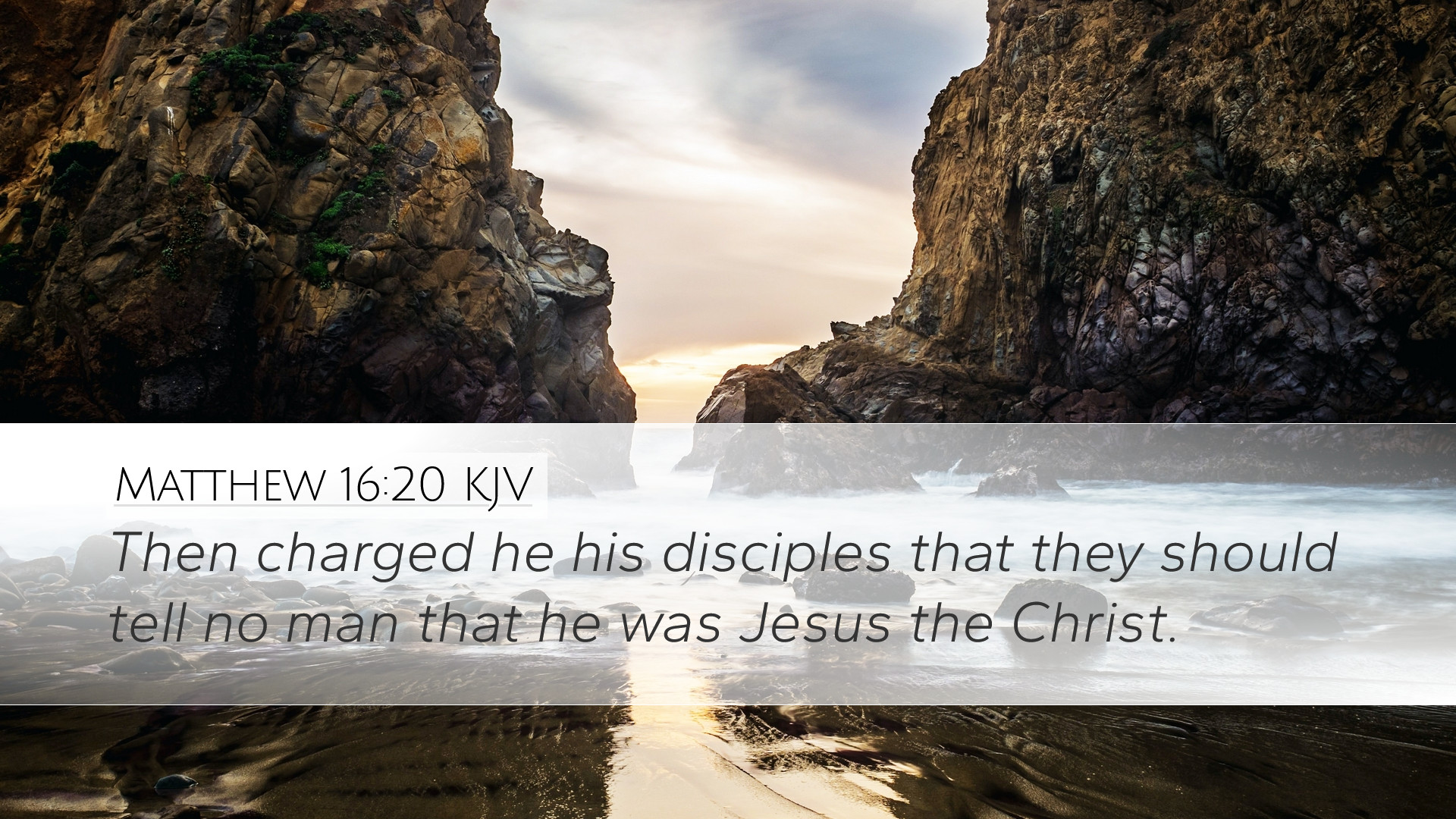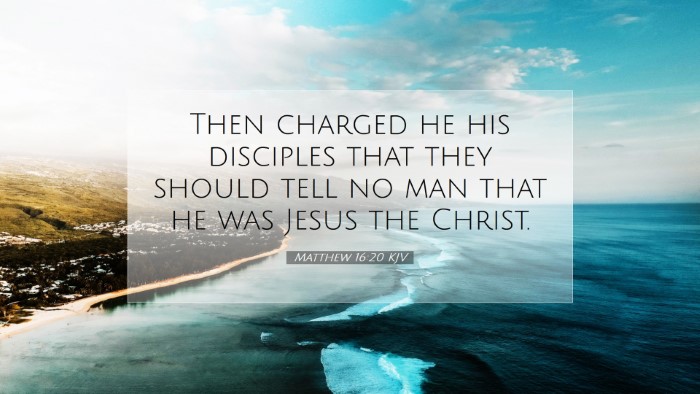Commentary on Matthew 16:20
Verse Reference: Matthew 16:20 - "Then charged he his disciples that they should tell no man that he was Jesus the Christ."
Context and Significance
This verse is set against the backdrop of Peter’s confession, where he recognizes Jesus as the Messiah (the Christ). After this significant declaration, Jesus instructs his disciples to keep his identity as the Messiah a secret. This command can seem perplexing at first glance, considering the mission of sharing the Good News. However, there are profound theological and practical reasons behind this directive.
Theological Implications
1. The Nature of Christ’s Ministry: Jesus’ ministry was characterized by a deliberate timing in revealing his identity as the Messiah. Matthew Henry notes that Jesus was concerned with the public perception of his mission and the premature proclamation that might mislead the masses regarding the nature of the kingdom he was establishing.
2. The Misunderstanding of the Messiah: Albert Barnes elaborates on the misconception about the Messiah among the Jews, who expected a political liberator rather than a spiritual savior. By curbing their declarations, Jesus intended to avoid being associated primarily with the nationalist and political interpretations of the Messiahship.
Historical Context
The time in which Jesus lived was fraught with tension between the Roman authority and Jewish expectations. Adam Clarke points out that revealing his identity could have incited a premature confrontation with these powers. Jesus aimed to fulfill his mission through teaching, miracles, and ultimately his sacrificial death and resurrection, rather than politically charged messianic declarations.
Practical Reflections
- The Role of Discipleship: This command signifies the importance of understanding the depth of one’s faith before public proclamation. Pastors and students of the Bible can draw on this to emphasize the need for spiritual maturity in sharing one’s beliefs.
- Silence in the Face of Revelation: The divine timing in the revelation of truth is paramount; it teaches that God’s plans often unfold gradually. This principle can guide believers in prayer and discernment as they await the right moment for action or discourse.
Pastoral Insights
This verse challenges pastors to consider how to guide their congregations in understanding the depth of Christ's mission. Matthew Henry encourages leaders to equip their congregations to recognize Jesus in a fuller context, emphasizing both his divinity and humanity.
Self-Reflection: As ministers, leaders may also reflect on their own understanding and experience of Christ before teaching others. The movement from personal revelation to public proclamation is a journey requiring preparation and authentication of faith.
Conclusion
In Matthew 16:20, we see a pivotal moment in Jesus' ministry where the tension between divine intention and human expectation is palpably illustrated. This directive to his disciples is laden with meaning that extends beyond the immediate context. It serves to remind followers of Christ that the timing and manner of sharing their faith is as crucial as the faith itself. Through this reflection, we glean insights not only for personal faith but for effective ministry and proclamation in our communities.
Final Thoughts
As theologians, students, and scholars engage with this passage, they are encouraged to delve deeper into the layers of meaning that inform Jesus' ministry. The decision to keep his identity a secret illuminates the complexities of divine revelation and human understanding—a theme relevant to every generation of believers.


